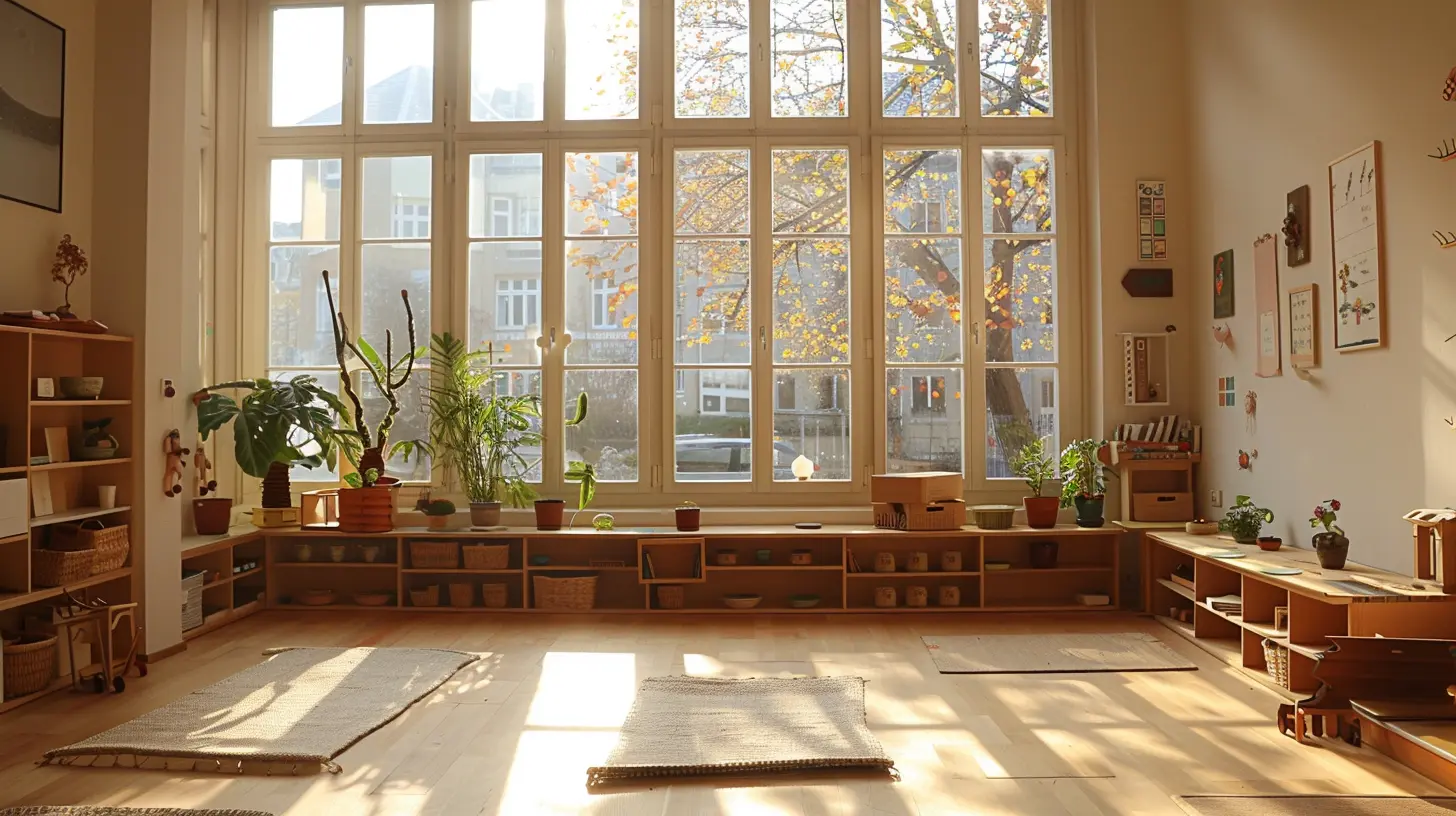17 March 2025
Montessori education is full of unique insights into how children develop, and one of the most fascinating concepts is the idea of "sensitive periods." If you’re a parent or an educator, understanding these sensitive periods can help you recognize when your child or student is most ready to learn specific skills. It's almost like knowing the secret timing for planting seeds in a garden—you plant them at just the right moment, and they bloom beautifully.
But what exactly are these sensitive periods? And how can you support children during these crucial times? Let’s dive deep into the Montessori philosophy and uncover the science behind these sensitive periods.

What Are Sensitive Periods?
In simple terms, sensitive periods are windows of opportunity during which a child is particularly receptive to learning certain skills or acquiring specific knowledge. During these windows, children absorb information almost effortlessly. Once the window passes, learning the same skill may take extra effort and time—kind of like trying to learn a new language as an adult. It’s possible, but it doesn’t come as naturally as it would if you’d started as a child.Dr. Maria Montessori, the founder of the Montessori method, observed these sensitive periods after years of research and interaction with young children. She noticed that children go through predictable phases where they are intensely focused on mastering certain abilities. These periods are temporary, but they play a crucial role in shaping a child’s development.

Why Are Sensitive Periods Important?
Imagine trying to teach a child how to ride a bike when they’re not ready. They may struggle, get frustrated, or even lose interest. Now, imagine teaching them when they’re naturally curious and excited about it. They’ll likely pick it up faster, feel more confident, and enjoy the process. This is the essence of teaching during a child’s sensitive period.Sensitive periods are important because they provide a natural guide for when children are most ready to learn specific skills. When you recognize and nurture these phases, you’re aligning with the child’s natural developmental timeline. You’re no longer swimming against the current, but flowing with it.
How Do Sensitive Periods Differ from Other Learning Phases?
While traditional education often takes a more structured, one-size-fits-all approach, sensitive periods in Montessori education emphasize the importance of timing. It’s not just about what you teach, but when you teach it. Children are natural learners, but they don’t learn everything at the same pace. Sensitive periods help educators and parents identify those golden moments when the brain is primed for learning specific things—like language, movement, or social interaction.
The Six Key Sensitive Periods in Montessori Education
Dr. Montessori identified several sensitive periods, but there are six that are often considered the most critical during early childhood (from birth to around six years old). Let’s break them down:1. Sensitive Period for Order (0-6 years)
Have you ever noticed how young children thrive on routine? That’s because they go through a sensitive period for order. During this time, children are particularly attuned to structure, sequence, and predictability. They enjoy knowing what comes next and feel secure in a familiar environment. Even something as simple as putting toys away in a certain order can bring them immense satisfaction.Why It Matters:
Order provides children with a sense of stability and security. It helps them make sense of the world around them. If this sensitive period is nurtured, children grow up feeling more organized and capable of handling routines.
How to Support It:
- Create a consistent daily routine.
- Organize their environment so that everything has its place.
- Involve them in household chores like setting the table or tidying up—activities that involve sequence and order.
2. Sensitive Period for Language (0-6 years)
Language is one of the most exciting sensitive periods. From birth to around age six, children are like little sponges when it comes to picking up words and sounds. During this time, they are wired to learn not only their native language but even multiple languages if exposed to them.Why It Matters:
Children who are exposed to rich language environments during this period tend to have stronger communication skills, a broader vocabulary, and a deeper understanding of grammar.
How to Support It:
- Talk to your child constantly, even if they can’t respond yet.
- Read books together every day.
- Introduce new words and encourage conversation.
- Sing songs, play word games, and narrate your daily activities to increase language exposure.
3. Sensitive Period for Movement (0-5 years)
Children are naturally driven to move, especially during early childhood. From crawling to standing, walking, and eventually running, there’s a strong internal urge to master physical abilities. This sensitive period allows children to gain control over their large and fine motor skills.Why It Matters:
Mastering movement is essential for a child’s independence and confidence. Think about how proud a toddler is when they can finally walk without help or how excited they get when they can dress themselves!
How to Support It:
- Provide opportunities for both gross motor activities (running, jumping) and fine motor skills (puzzles, drawing).
- Avoid restricting movement with things like walkers or playpens for long periods.
- Let children practice dressing themselves, even if it takes longer.
4. Sensitive Period for Small Objects (1-4 years)
Have you ever watched a toddler obsess over the tiniest pebble on the ground or the buttons on a remote control? This fascination with small objects is another sensitive period. During this time, children are highly focused on details and enjoy exploring small things with their fingers and eyes.Why It Matters:
This period helps children develop fine motor skills, hand-eye coordination, and concentration. It also encourages them to pay attention to details that adults might overlook.
How to Support It:
- Offer safe, small objects for them to manipulate, like beads, buttons, or small puzzles.
- Create sensory bins with various textures and objects for them to explore.
- Encourage activities like sorting small items, threading beads, or stacking blocks.
5. Sensitive Period for Social Behavior (2.5-6 years)
As children grow, they become increasingly interested in the people around them. During the sensitive period for social behavior, children learn how to interact with others, develop empathy, and understand social norms. They become more aware of group dynamics and are eager to imitate adult behavior.Why It Matters:
Social skills are essential for building relationships and functioning in society. Children who are supported during this phase often become more empathetic, cooperative, and respectful of others.
How to Support It:
- Model positive social behavior, like sharing, saying “please” and “thank you,” and being kind.
- Provide opportunities for group play and social interaction.
- Teach problem-solving techniques for conflicts, rather than stepping in too quickly.
6. Sensitive Period for Sensory Exploration (0-6 years)
Children learn about the world through their senses. From birth, they are naturally curious about how things look, sound, taste, feel, and smell. During this sensitive period, children are highly tuned into sensory experiences, and these experiences lay the foundation for cognitive development.Why It Matters:
Sensory exploration helps children make sense of the world and enhances brain development. It also plays a crucial role in developing creativity, problem-solving skills, and memory.
How to Support It:
- Offer sensory-rich activities, such as playing with sand, water, or clay.
- Encourage outdoor play where they can explore different textures, smells, and sounds.
- Introduce them to various environments like parks, beaches, or forests.

Recognizing and Supporting Sensitive Periods
Now that you know about the key sensitive periods, how can you recognize when a child is going through one? Here are a few signs to look out for:1. Intense Focus: The child becomes deeply absorbed in a particular activity or skill.
2. Repetition: They may repeat an action or task over and over again, even if it seems unnecessary to you.
3. Frustration or Resistance: If they’re unable to engage in the activity they’re drawn to, they may become unusually frustrated or resistant.
4. Independence: You’ll notice a strong desire to do things on their own, whether it’s dressing themselves, choosing their own activities, or solving problems.
Once you recognize a sensitive period, the best thing you can do is provide an environment that supports it. Offer tools, toys, and experiences that align with their current interests and let them explore freely. Remember, this doesn’t mean you need to push them or enforce strict schedules. It’s about observing, responding, and creating opportunities for natural learning.
Final Thoughts
Understanding the sensitive periods in Montessori education is like having a roadmap to your child’s brain. By recognizing these windows of opportunity, you can better support their natural development and help them grow into confident, capable individuals. Sensitive periods remind us that education isn’t just about teaching—it’s about timing, observation, and trust in the child’s inner drive to learn.So, next time your little one is obsessively stacking blocks or babbling away in their crib, take a step back and appreciate the magic of the moment. They’re not just playing—they’re growing.









Alice McLain
This article beautifully highlights the importance of sensitive periods in Montessori education, emphasizing how they guide educators and parents in fostering optimal learning experiences for children.
April 2, 2025 at 11:30 AM